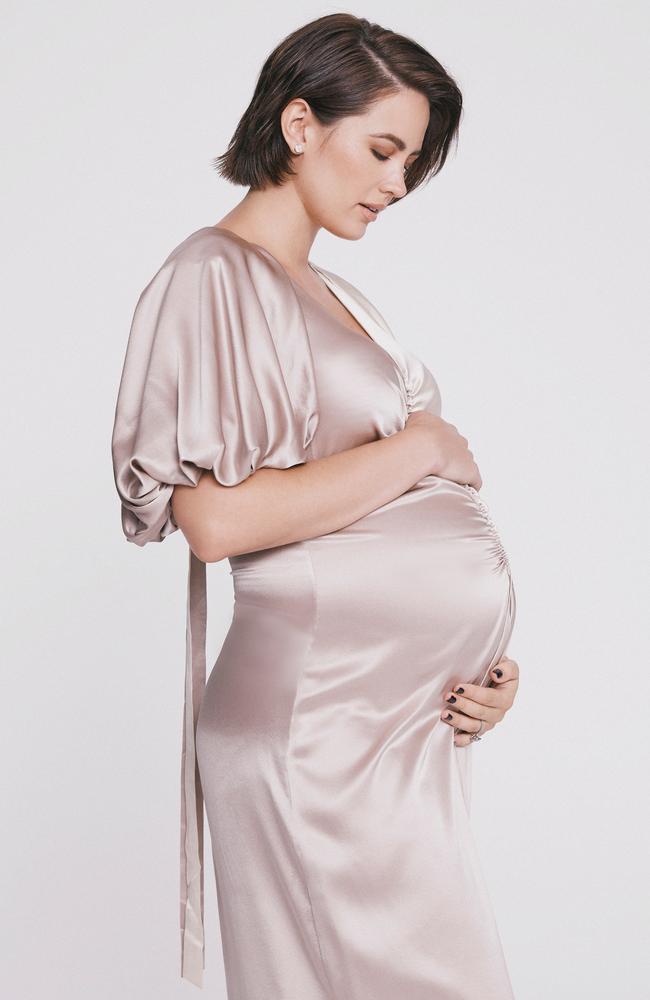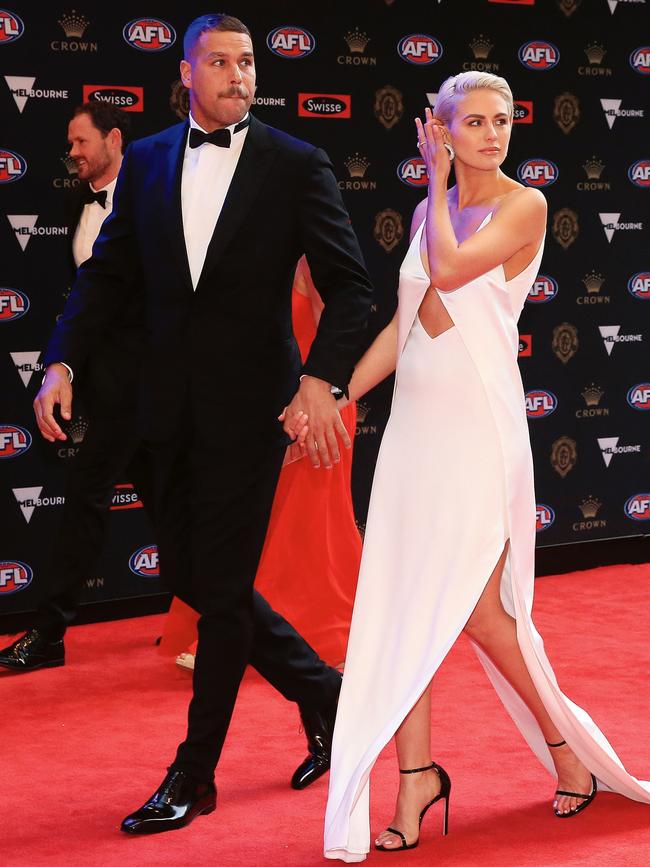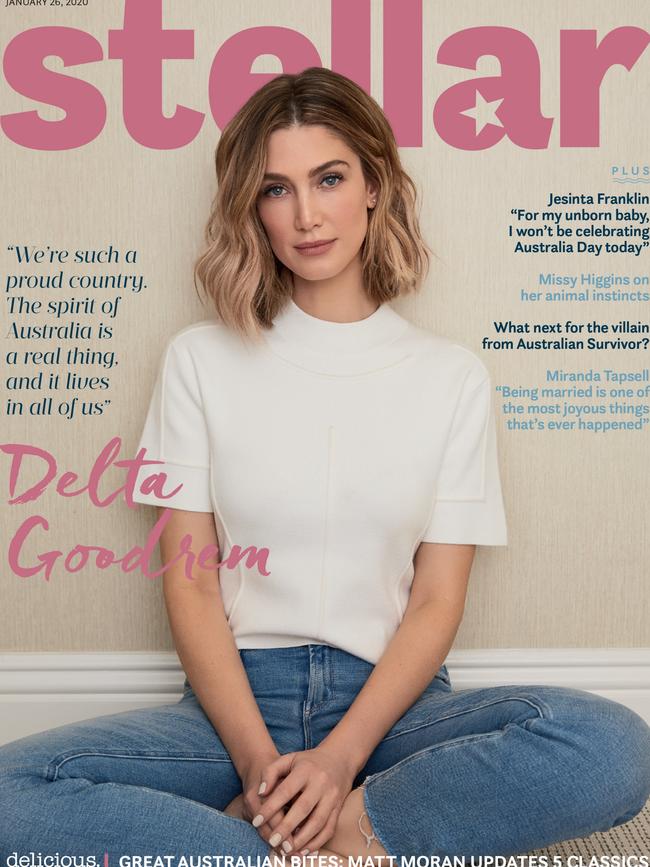Jesinta Franklin: ‘Why I won’t celebrate Australia Day’
A heavily-pregnant Jesinta Franklin opens up about why her love for her husband, Sydney Swans star Buddy Franklin, and their unborn child means she cannot celebrate Australia Day on January 26.
Stellar
Don't miss out on the headlines from Stellar. Followed categories will be added to My News.
When asked to pen this column I have to admit I was a little bit nervous.
I said yes straightaway, because it is an issue close to my heart and one that needs to be talked about more.
But I also feel a great responsibility to be able to articulate my feelings, thoughts and views in a way that is respectful to my husband and his family, who are Indigenous.
And also in a way that might touch those who may have never really given much thought as to why it is so important to change the date we celebrate Australia Day.
Growing up, I received an alternative education that gifted me with an incredible teacher who I had for my whole primary school life, from Years 1-7. He was extremely passionate about anything to do with nature, Indigenous culture and history.

To this day, I vividly remember time spent walking through the bush, exchanging lessons in bush tucker, and pausing by the edge of a creek on the school property to share tales from the Dreamtime.
I start my story here, because even though I had a deep respect and what I thought was a good understanding of our Indigenous history through my time at school, it wasn’t until I met my husband Buddy, a proud Noongar man, that I began to truly understand the hurt and impact that took place once the British claimed sovereignty of Australia on January 26, 1788.
For my husband and his family, January 26 – now celebrated as Australia Day – marks the beginning of a dark time in history for their people, a period that still, all these years later, recalls injustice, loss and generations of pain and hurt.
While I had read and learnt about the horrors of Australia’s past, it wasn’t until I listened to the pain endured from someone close to me that I began to deeply feel the importance of changing the date.


I have seen my husband well up when talking about his mum and how she used to have to run away with her siblings when they knew the government trucks were coming to take them away from their parents.
Or when his sisters have shared stories of their grandparents, who were born into a world that considered them flora and fauna.
Take a minute to think about what it is like to have these conversations as a family and not only just read about it in books or online – to know that the people you love actually lived through this, that this was their reality. It is raw and deeply painful.
Celebrating Australia Day on January 26 is, for my husband, like celebrating and glorifying the beginning of the disposition of Indigenous land and his people, followed with years of hurt that still impacts generations today.
Changing the date doesn’t change the past, but it is a step forward; it is holding out our hand to our Indigenous brothers and sisters and saying: “We hear you and we acknowledge you. Let’s walk forward into the future together and continue the journey towards reconciliation with a sense of togetherness and hope for what is to come.”

Australia Day should be a celebration for all Australians, a day that is inclusive for everyone in this country.
My hope is that one day I can join in the celebrations of Australia Day with not only my husband and his family but also our child, and enjoy the day in harmony with the rest of the country.
All this would take is an acknowledgment that the 26th of January is not the time when all Aussies feel celebrated. It needs to be moved to another date that doesn’t hold so much hurt for so many people.
As I sit here trying to find a way to end my column, the little life growing inside me begins to kick and wriggle. My hand immediately moves to my very swollen belly and I smile.
This is why changing the date is so important; we need to come together and support changing the date of Australia Day in hopes of healing some of those wounds for future generations of not only our Indigenous people, but for all Australians, so we can continue to move forward with the journey of reconciliation and build a future together.
